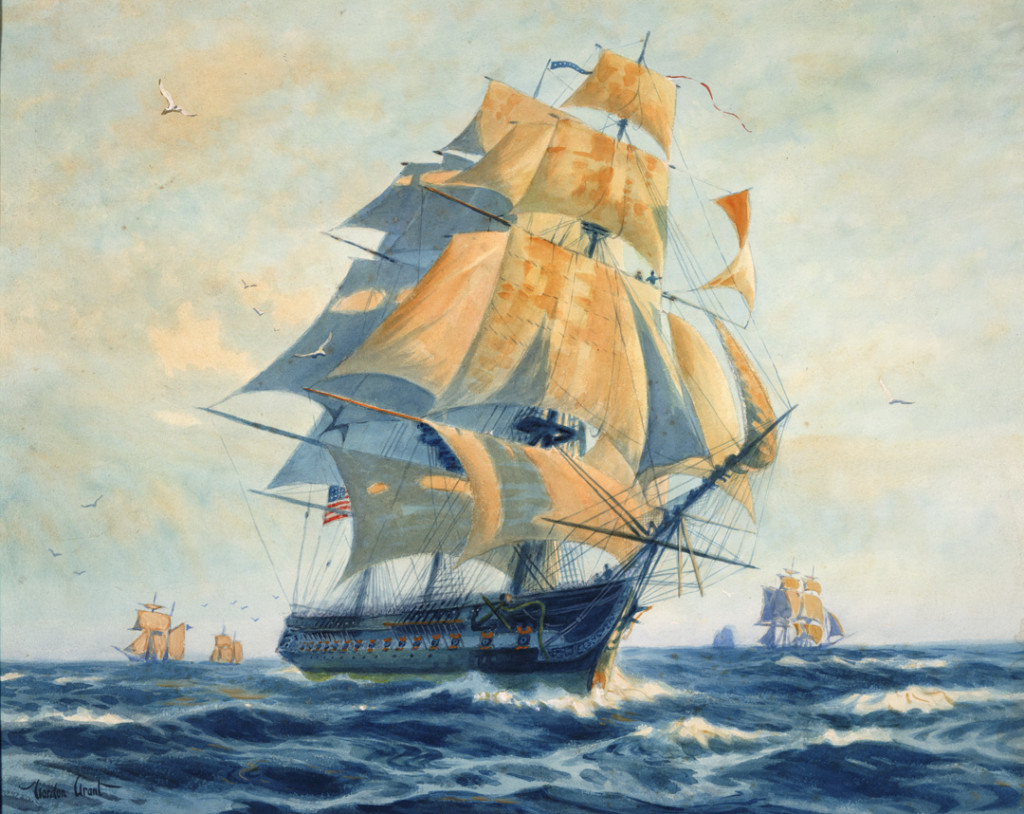Thursday
Poetry began and ended the first day of Donald Trump’s Senate trial, and it may be significant that both poems were written during a time of factionalism reminiscent of the present day—which is to say, in the years leading up to the Civil War.
In his opening prayer, Senate Chaplain Barry Black quoted the well-known lines from James Russell Lowell’s “The Present Crisis.” Furnishing the words to a once popular hymn, it impressed me as a member of the Otey Parish children’s choir–as in, “Wow, the church really means business.” Here’s the stanza from which Black quoted, with the lines he used bolded:
Once to every man and nation comes the moment to decide,
In the strife of Truth with Falsehood, for the good or evil side;
Some great cause, God’s new Messiah, offering each the bloom or blight,
Parts the goats upon the left hand, and the sheep upon the right,
And the choice goes by forever ‘twixt that darkness and that light.
On the one hand, although written in the trenchant tones of abolitionist Christianity, the sentiments seem unexceptional enough. The senators have a momentous decision before them.
On the other, there’s no question about how Lowell would have responded to the white supremacists who, at the direction of the president, stormed the Capitol. The poem as a whole is filled with slavery images, and while many of these are metaphorical, their frequency indicates that Lowell has the literal oppression of slaves on his mind. Here’s a sample stanza:
Slavery, the earth-born Cyclops, fellest of the giant brood,
Sons of brutish Force and Darkness, who have drenched the earth with blood,
Famished in his self-made desert, blinded by our purer day,
Gropes in yet unblasted regions for his miserable prey;—
Shall we guide his gory fingers where our helpless children play?
If the GOP doesn’t vote against a president who embraces racists, fascists, and anti-Semites, the Lowell would see them choosing the evil path.
The Biblical goats/sheep allusion, incidentally, is to Matthew 25:31-46, which has become a touchstone passage in battles between rightwing white evangelicals and liberal Christians, with the latter asking why fundamentalists support a president who tears children from their parents and strives to strip the needy of health care. The Biblical parable involves a king visiting his people and making judgment:
Then the King will say to those on his right, ‘Come, you who are blessed by my Father; take your inheritance, the kingdom prepared for you since the creation of the world. For I was hungry and you gave me something to eat, I was thirsty and you gave me something to drink, I was a stranger and you invited me in, I needed clothes and you clothed me, I was sick and you looked after me, I was in prison and you came to visit me.’
The goat side is the evil side in this drama:
Then he will say to those on his left, ‘Depart from me, you who are cursed, into the eternal fire prepared for the devil and his angels. For I was hungry and you gave me nothing to eat, I was thirsty and you gave me nothing to drink,I was a stranger and you did not invite me in, I needed clothes and you did not clothe me, I was sick and in prison and you did not look after me.’
“They also will answer, ‘Lord, when did we see you hungry or thirsty or a stranger or needing clothes or sick or in prison, and did not help you?’
“He will reply, ‘Truly I tell you, whatever you did not do for one of the least of these, you did not do for me.’
“Then they will go away to eternal punishment, but the righteous to eternal life.”
In the other poem, Trump’s defense attorney concluded his case against the impeachment trial by citing stanzas from Henry Wadsworth Longfellow’s “Building of the Ship,” also written pre-Civil War.” The lawyer, attempting to reclaim the mantle of Lincoln for the GOP (since Lincoln liked the poem), essentially accused Democrats of factionalism for bringing Trump to trial in the first place. “This trial will tear the country apart, perhaps like we’ve only ever seen once in history,” he proclaimed.
In other words, by attempting to hold the president accountable for what happened on January 6, the Democrats are the fractious ones. Why can’t they just overlook the storming of the Capitol and “sail on.” The lawyer was in tears (“the moistened eye, the trembling lip”) as he punctuated his peroration with two passages from the Longfellow poem.
First this one:
Sail forth into the sea, O ship!
Through wind and wave, right onward steer!
The moistened eye, the trembling lip,
Are not the signs of doubt or fear.
And then this one:
Sail on, nor fear to breast the sea!
Our hearts, our hopes, are all with thee,
Our hearts, our hopes, our prayers, our tears,
Our faith triumphant o’er our fears,
Are all with thee, — are all with thee!
Poetry, well used, packs a punch, whether for good or for ill. As one twitter wag commented, however, “If my lawyer read a poem and then cried, I would just assume I’m getting life in prison.”
The devil apparently can cite verse as well as Scripture for his purpose. Patriotic poetry, the last refuge of the scoundrel.
Further thought: David Corn of Mother Jones notes that another line from the Longfellow poem–a call for the country to “prevail o’er angry wave and gust”–“could well justify the proceedings at hand.”
